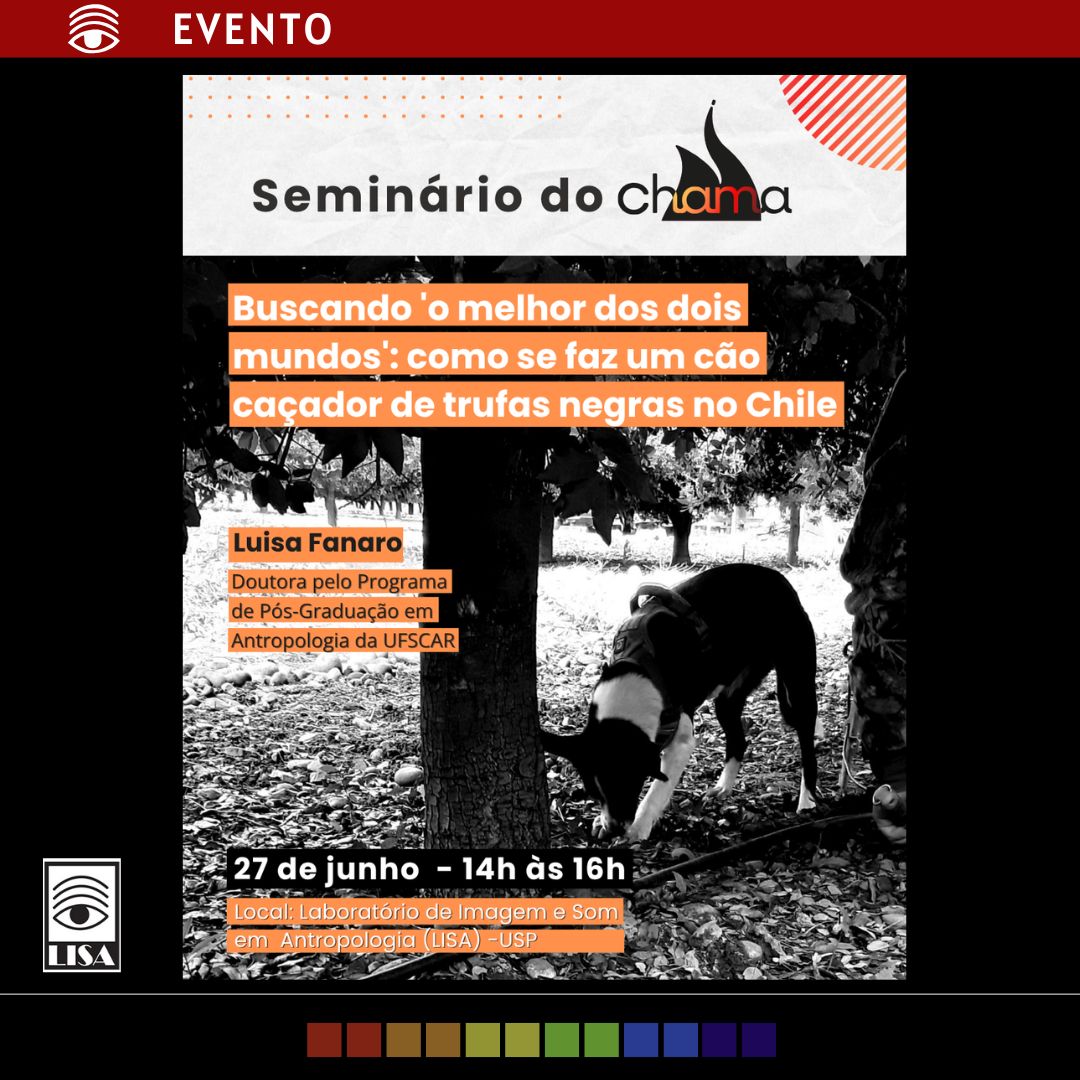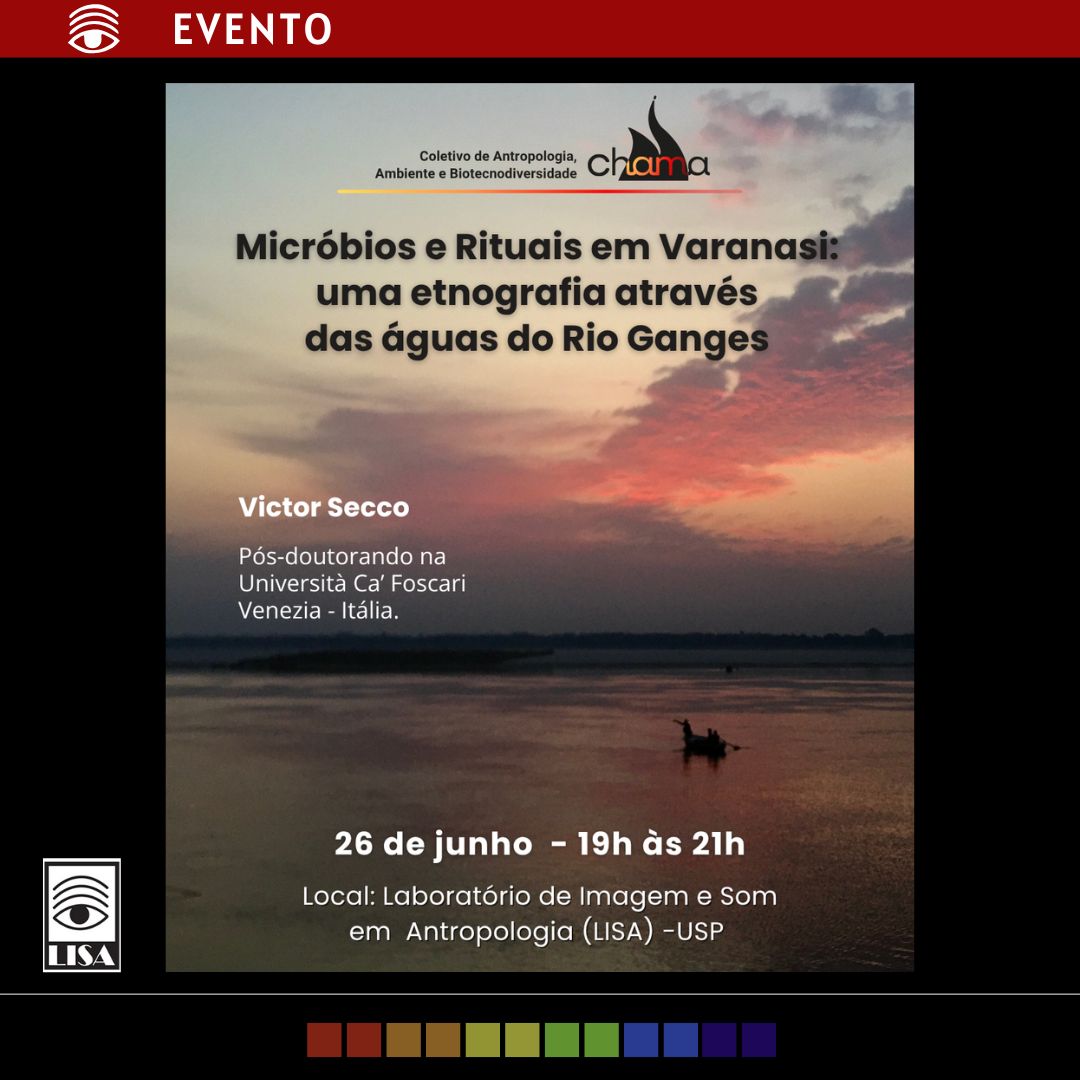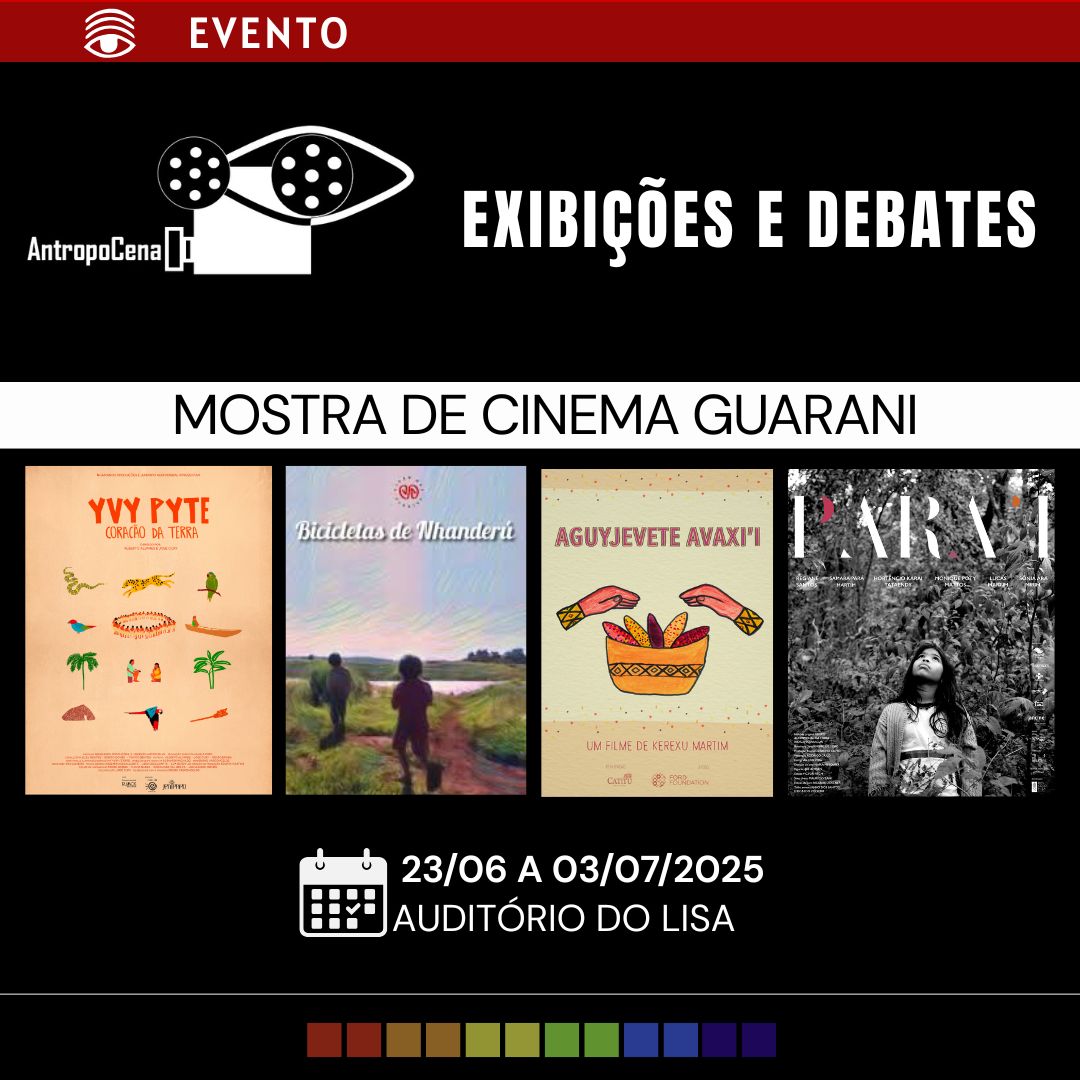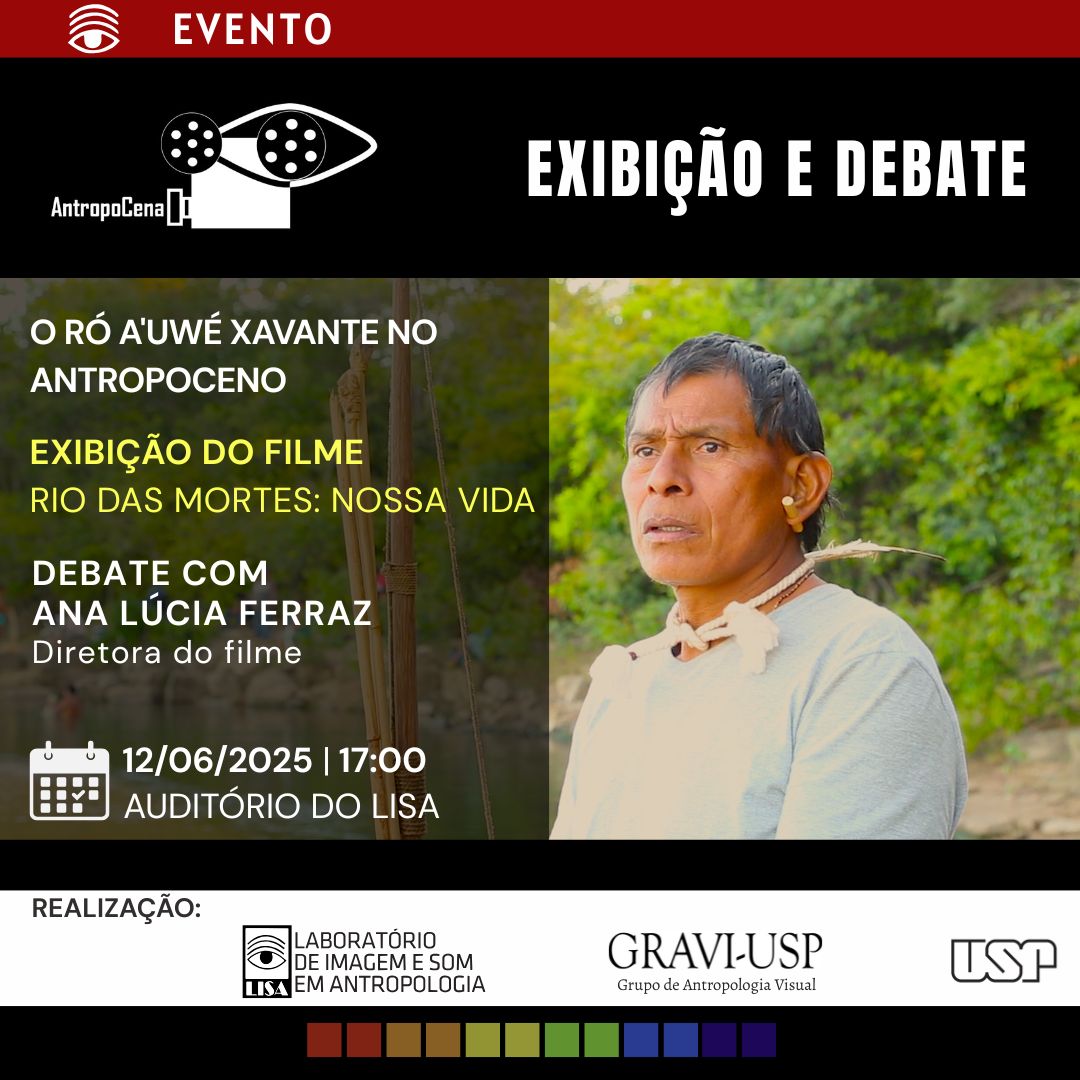Happened at LISA
The University of São Paulo (USP) will host the Franco-USP Week of Cooperation in Sciences, Arts and Humanities, from September 15 to 26, 2025. The event celebrates scientific collaborations between French universities and USP and, this year, gains special prominence by commemorating 200 years of bilateral relations between France and Brazil.
The program, which is the result of a partnership between different sectors of the University, the Consulate General of France in São Paulo, the Worlds in Transition Laboratory (IRL-CNRS-USP) and IdA-pôle Brésil, incorporates activities related to the Saison Croisée Brésil-France 2025, an agenda launched by Presidents Emmanuel Macron and…
maisWe invite you to a meeting with Prof. Dr. Marco Antônio Gonçalves on September 02, 2025, at 3:00 p.m., in the auditorium of the Image and Sound Laboratory in Anthropology (LISA-USP).
The event "Glances, Imaginaries, and (m)Flames: Weaving Anthropologies in Times of Crisis" proposes a reflection on the contemporary challenges of anthropology and on how images, cinema, and other visual/expressive practices can inspire new languages, worlds, and methodologies in the face of current climatic, social, and political emergencies.
Marco Antônio Gonçalves is a Full Professor of Anthropology at the Department of Cultural Anthropology of the Institute of Philosophy and Social…
maisOn September 15, 2025, at 4 p.m., the Métis Convida edition will feature Alex Flynn, a professor at the University of California, Los Angeles (UCLA). Flynn will present his research, "Paths to Utopia: Temporalities of Transformation in the Landless Movement."
Since its founding in 1984, the Landless Workers' Movement (MST) has become an international benchmark for agrarian reform struggles. For forty years, the MST has been a beacon of hope. While other progressive movements have dissipated, the MST persists with renewed vigor, providing secure land and housing to more than half a million people and settling 450,000 families. Nevertheless, MST members speak of agrarian…
How can we learn from animals to recover from catastrophic forest fires? In this presentation, Verónica Policarpo will address this question based on the ABIDE project, which examines post-fire recovery in three countries: Brazil, Portugal, and Australia. Policarpo will share aspects of her fieldwork in the Serra da Estrela region and discuss ways animals can inspire the creation of multispecies communities with greater ecological diversity, leading to more effective post-fire regeneration and resilience.
Policarpo is an anthropologist and a senior researcher at the Institute of Social Sciences of the University of Lisbon (ICS-ULisboa), as well as the coordinator of the Human-…
maisAn ethnographic exploration of anthropological failure through the Mapuche archetypes of witch, clown, and usurper How do we learn what failure looks like? During the years anthropologist Magnus Course spent living with Indigenous Mapuche people in southern Chile, he came to understand failure—both his own and those of the discipline of anthropology—through Mapuche narratives of the witch, the clown, and the usurper. In a context of enduring poverty and racism, increasing state repression, and his own disintegration, he began to realize that these figures of failure, and their insatiable appetites for destruction, greed, and property, reflected as much upon his own failings as on anybody…
maisLISA-USP is pleased to invite you to the AntropoCena screening of Adó, Mestre dos Sons (Adó, Master of Sounds), directed by Jorge Lampa Vasconcelos. Vasconcelos will be present to discuss his work. Rose Satiko Gitirana Hikiji will moderate the discussion.
Vasconcelos is a musician, singer, cantador, singer-songwriter, and guitarist. He is also an adjunct professor of popular music at the Center for Culture, Languages, and Applied Technologies at the Federal University of Recôncavo da Bahia (CECULT-UFRB). He has a solid academic background: he received a bachelor's degree in Popular Music in 1993, a master's degree in Arts in…
maisOn June 27, 2025, at 2 pm, LISA will host the lecture “Seeking ‘the best of both worlds’: how a black truffle hunting dog is made in Chile”, promoted by the Anthropology and Biotechnodiversity Collective (CHAMA-USP), under the coordination of Guilherme Moura Fagundes.
In this presentation, Luísa Fanaro will discuss the practices of preparing human-canine pairs for hunting black truffles (Tuber melanosporum) in Chile. Based on her ethnography, the author shows that this process depends on a dual dynamic of communication: between dogs and truffles — an underground fungus — and between dogs and humans. If, on the one hand, it is…
maisThe Laboratory of Image and Sound in Anthropology (LISA-USP) will host, on June 26, 2025, at 7 pm, the lecture "Microbes and Rituals in Varanasi: an ethnography through the waters of the Ganges River". The event is an extension activity of the Anthropology and Biotechnodiversity Collective (CHAMA-USP) and is part of the program of the discipline "Anthropology of Microorganisms", coordinated by Guilherme Moura Fagundes.
Victor Secco will present central themes of his doctoral research, defended at the University of Manchester (England), which investigates the intersections between science, religion and multispecies interactions, based on an ethnography conducted with Hindu…
maisThe Laboratory of Image and Sound in Anthropology (LISA-USP) will show four contemporary Guarani films in its auditorium, in special sessions, as part of the AntropoCena project, followed by debates with guests. Originating from the discipline Extension Practices in Indigenous Ethnology, under the guidance of Professor Pedro Cesarino, the exhibition aims to foster debate on issues dear to indigenous peoples, such as the relationship between territory and identity, in addition to raising, with a focus on the Guarani, discussions on the place of indigenous cinema in the national and international audiovisual panorama and giving visibility to this production.
Program:
DAY 1…
maisThe film “Rio das Mortes: nossa vida” will be shown in the AntropoCena session on June 12, 2025, at 5:00 p.m., in the LISA auditorium, in partnership with the Visual Anthropology Group of the University of São Paulo (GRAVI-USP), and will feature the presence of Ana Lúcia Ferraz, Associate Professor of the Department of Anthropology and Coordinator of the Ethnographic Film Laboratory of the Fluminense Federal University (UFF).
Ana Lúcia graduated from USP and holds a master's degree in Anthropology (1999), a PhD in Sociology (2005), and a postdoctoral degree in Social Anthropology (2010). She currently works in the fields of Indigenous Ethnology and Visual Anthropology, and is the…
mais











